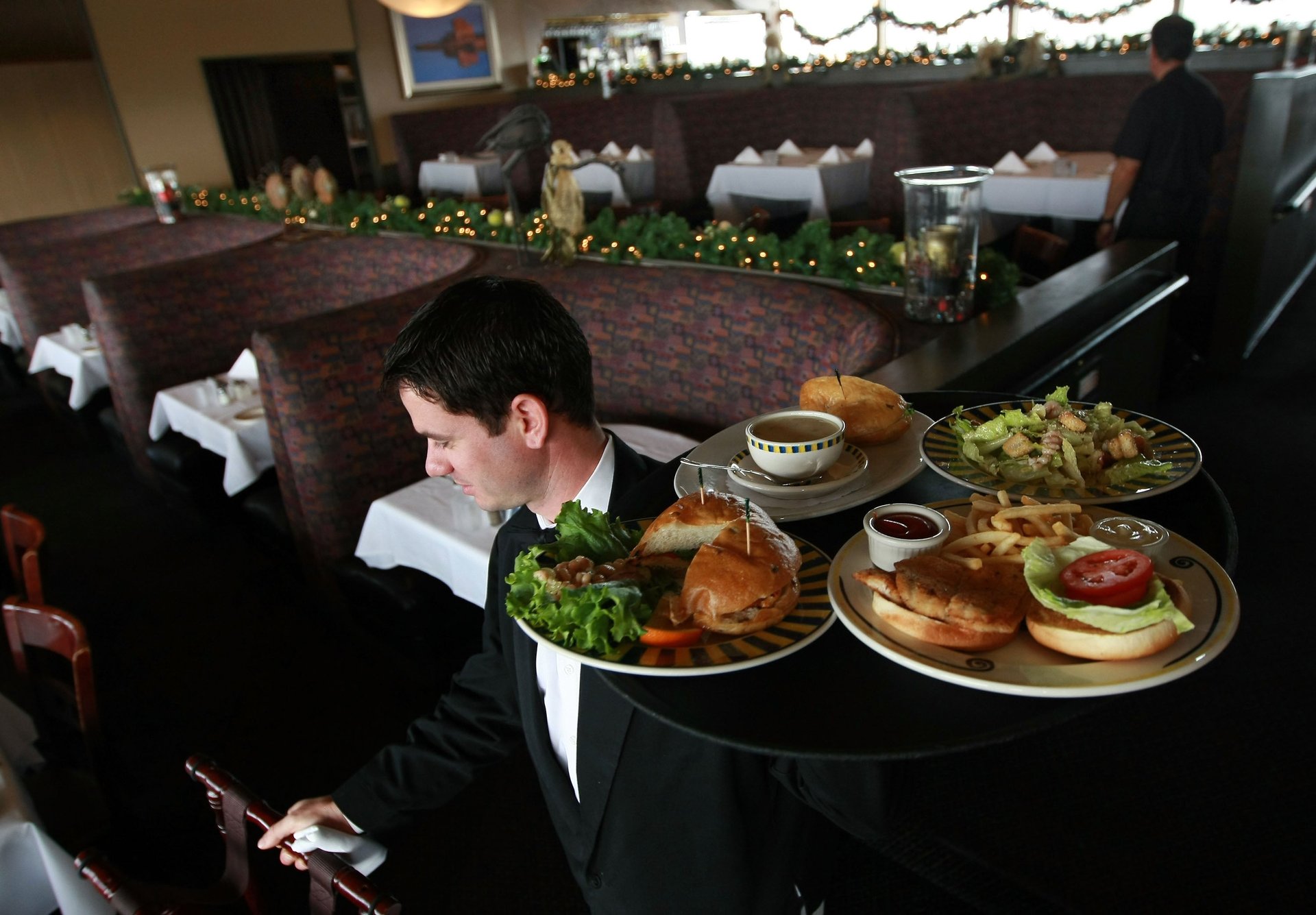Will Trump spare restaurants from tariffs?
As tariffs loom, the restaurant industry urges action to avoid raising costs for consumers

The restaurant industry is on edge, urging President Donald Trump to exempt food and beverage imports from a proposed round of tariffs set to take effect on March 4, which could cost the sector $12 billion.
Suggested Reading
The National Restaurant Association (NRA) warned in a letter provided to Quartz that a 25% tariff on food and drinks from Mexico and Canada could lead to higher menu prices, putting the burden on consumers and make dining out more expensive. The tariff would further slim profit margins, which currently range between 3% and 5%, the trade group stated, noting that, on average, restaurants have only 16 days of cash on hand.
Related Content
“We urge you to exempt food and beverage products to minimize the impact on restaurant owners and consumers,” the NRA said. “This will help keep menu prices stable.”
The group also emphasized that U.S. food production is limited by climate and growing conditions, making imports from neighboring countries essential to meeting demand. To remain an engine driver, the NRA argued that restaurants “cannot continue raising prices to offset higher costs.” They added that food and beverage products don’t significantly contribute to the U.S. trade deficit, a key focus of Trump’s trade agenda.
“It remains unclear whether the tariffs will apply only to Canada and Mexico, to steel and aluminum, to reciprocal tariffs, or to all of these,” said Kevin Ford, FX & Macro Strategist at Convera.
The warning follows similar concerns from other industries. Last year, the National Retail Federation (NRF) projected that American consumers could lose between $47 billion and $78 billion in spending power annually due to tariffs. Consumer sentiment also dipped, with a 5% drop recorded in Feb. 2025, partly attributed to fears of price hikes from tariffs.
Retailers like Walmart, Target, and Costco have expressed concern over potential price increases and product shortages, with some indicating higher costs would likely be passed on to consumers. Supply chain disruptions similar to those seen during the pandemic are also a looming worry.
As the tariff debate continues, the restaurant industry hopes Trump will consider their concerns, aiming to avoid adding further strain to the economy, and keeping dining prices stable. Meanwhile, the tech sector, including companies like Apple (AAPL) and Microsoft (MSFT), is following a proven playbook of fostering close ties with the president – a strategy that has worked to their advantage in the past.